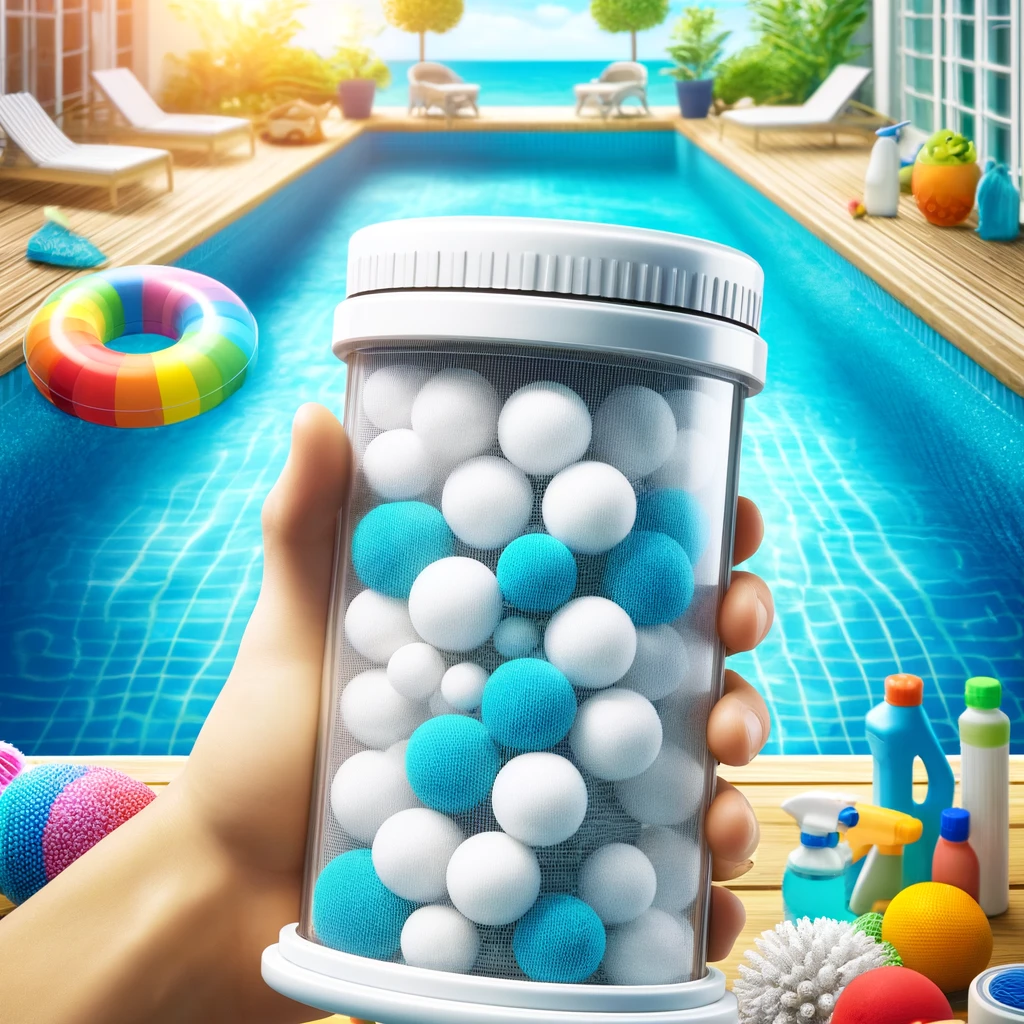Filter balls have become a popular choice for pool maintenance. They offer effective filtration while being easy to maintain. However, knowing when to replace them is crucial to ensuring optimal pool water quality. In this article, we will explore the lifespan of filter balls for pool use, factors affecting their durability, and signs that it’s time for replacement.
I. Understanding Filter Balls
Filter balls for pool systems are an innovative alternative to traditional sand filters. They are made from high-quality polyester fibers, designed to capture small particles more efficiently than sand. filter balls are a specific type, infused with carbonate, enhancing their filtration capabilities. Because they are lightweight and reusable, they have become a favorite for pool owners.
But, like any filtration medium, filter balls for pool systems have a finite lifespan. So, when should you consider replacing them?
II. Expected Lifespan of Filter Balls
On average, filter balls for pool use can last for two to five years. This lifespan largely depends on pool size, water quality, and pool usage. High-traffic pools or those exposed to harsh environmental conditions may see filter balls wear out sooner.
In contrast, filter balls may last longer, especially if maintained properly. Due to their infusion, they are more resistant to mineral buildup. Therefore, they may endure longer than standard filter balls.

III. Factors Affecting the Lifespan of Filter Balls
Several factors influence the durability of filter balls for pool filtration systems. Here’s a breakdown:
1. Pool Size and Usage
Larger pools or pools used frequently require more filtration. This means your filter balls for pool systems will work harder and may wear out sooner.
2. Water Quality
Poor water quality, particularly high levels of debris or minerals, can reduce the lifespan of filter balls for pool systems. High or magnesium levels lead to clogging, forcing the filter to work harder. This is especially true for non-filter balls, which lack the added mineral resistance.
3. Chemical Balance
Maintaining proper pH and chlorine levels extends the life of your filter balls. An imbalance in pool chemicals, particularly high acidity, accelerates the breakdown of filter balls for pool use.
4. Maintenance Habits
Regularly cleaning your filter balls for pool systems can significantly extend their lifespan. Simple cleaning methods, such as backwashing and rinsing, prevent blockages and ensure proper functioning.
IV. Signs It’s Time to Replace Filter Balls
How do you know when your filter balls for pool need replacing? Here are key indicators:
1. Reduced Water Flow
If water isn’t flowing smoothly through the filtration system, your filter balls for pool may be clogged. Though cleaning may temporarily restore flow, repeated issues suggest it’s time for replacement.
2. Cloudy Water
When water becomes murky despite regular filtration, it could mean your filter balls for pool are no longer effective. This is a sign that they’re worn and should be replaced.
3. Increased Pool Cleaning
If you notice the need for more frequent pool cleaning, it could be because your filter balls for pool aren’t capturing particles as effectively. Over time, their filtration capacity diminishes.
4. Discoloration or Odor
If your filter balls for pool change color or develop an odor, they are likely at the end of their lifespan. This is particularly important for filter balls, as their resistance to mineral buildup may mask issues longer than standard filter balls.
V. How to Replace Your Filter Balls
Replacing filter balls for pool systems is a straightforward process. Here’s how to do it:
1. Turn Off the Pump
Always ensure the pool pump is off before beginning any filtration system maintenance.
2. Remove the Old Filter Balls
Open the filter housing and remove the worn-out filter balls. Dispose of them according to local regulations.
3. Clean the Filter Housing
Before adding new filter balls, clean the filter housing thoroughly. Remove any debris or buildup that could hinder the performance of your new filter balls for pool system.
4. Install New Filter Balls
Pour the new filter balls for pool into the filter housing. Ensure they are evenly distributed for optimal filtration.
5. Restart the System
Turn the pump back on and check the water flow. It should be smooth, indicating proper filtration.
VI. Maximizing the Lifespan of Filter Balls
To maximize the lifespan of your filter balls for pool, follow these tips:
1. Regular Cleaning
Backwash your filter system weekly to remove trapped particles. This prevents blockages and reduces wear on the filter balls for pool system.
2. Monitor Chemical Levels
Keep your pool’s pH, chlorine, and mineral levels in check. Imbalanced water chemistry accelerates the degradation of filter balls for pool use.
3. Use a Pool Cover
Using a cover when the pool is not in use reduces the amount of debris and contaminants entering the water. This reduces the strain on your filter balls for pool filtration system.
4. Upgrade to Filter Balls
If you live in an area with hard water, consider switching to filter balls. Their added resistance to mineral buildup can extend their lifespan.

VII. Conclusion
In summary, filter balls for pool systems offer efficient and long-lasting filtration, but they are not eternal. Most filter balls last between two to five years, depending on pool conditions and maintenance habits. Regular cleaning, monitoring water quality, and paying attention to signs of wear will help you determine when it’s time to replace them. By staying proactive, you ensure your pool stays clean and safe year-round.

 Instant
Quote
Instant
Quote Email
Us
Email
Us